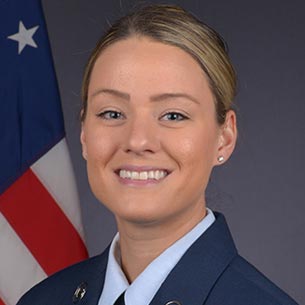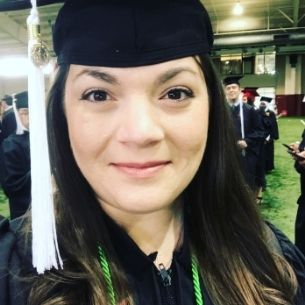Bachelor of Science (BS) in
Food and Nutrition
Online
Program Overview
Combine your love of science with a desire to learn and educate others about the importance of human nutrition. By earning your Bachelor of Science in Food and Nutrition online from The University of Alabama, you’re taking the first step toward becoming a registered dietitian or taking other paths in food and nutrition. Through this program you will gain an understanding of the relationship between nutrition and human health and be able to apply that knowledge in your career.
-
Program Format
Online -
Credit Hours
120 -
Tuition Per Hour
$385
Turn Your Love of Nutrition into a Career
This program is one of only 11 distance learning programs in the United States accredited by the Accreditation Council for Education in Nutrition and Dietetics (ACEND), and since it’s 100% online, it’s perfect for working adults.
Graduates of this program could pursue a variety of potential careers, including working in medical centers, small hospitals, public health departments, community agencies, private consulting firms, and business and industry environments.
Master’s Requirement to Become a Registered Dietitian
Effective Jan. 1, 2024, the Commission on Dietetic Registration (CDR) requires a minimum of a master’s degree to be eligible to take the credentialing exam to become a registered dietitian nutritionist (RDN). To be approved for registration examination eligibility with a bachelor’s degree, an individual must meet all eligibility requirements and be submitted into CDR’s Registration Eligibility Processing System (REPS) before 12:00 midnight Central time on Dec. 31, 2023. For more information about this requirement visit CDR’s website.
In addition, CDR requires that individuals complete coursework and supervised practice in program(s) accredited by the Accreditation Council for Education in Nutrition and Dietetics (ACEND). Graduates who successfully complete the ACEND-accredited Didactic Program in Dietetics (DPD) program at The University of Alabama are eligible to apply to an ACEND-accredited supervised practice program.
- Application DeadlineApplications accepted year round
- RankingNo. 2 among the best bachelor’s in Nutritional Sciences degree programs by TheBestSchools.org for 2019
- AccreditationACEND (Accreditation Council for Education in Nutrition and Dietetics)
- Other Program SpecificsMajor satisfies part of the requirements leading to the registered dietitian credential, a didactic program in dietetics, to which students must apply after 60 credit hours
- Are test scores required?ACT and SAT scores are not required through the Fall 2024 entry term
Curriculum
The bachelor’s in Food and Nutrition requires the successful completion of 120 hours. The program requires 59 hours of major courses, 20 hours of science courses and 44 hours of general education courses. Please note that courses are subject to change.
- NHM 101 Introduction to Human Nutrition
- NHM 195 Introduction to Dietetics and Nutrition
- NHM 201 Nutrition in the Life Cycle
- NHM 253 Food Science
- NHM 295 Introduction to Research in Food and Nutrition
- NHM 340 Community Nutrition
- NHM 345 Nutrition Counseling
- NHM 346 Nutrition Education: Theories and Practice
- NHM 361 Nutritional Biochemistry
- NHM 362 Nutrition at the Cellular Level
- NHM 363 Applied Nutrition
- NHM 365 Medical Nutrition Therapy I
- NHM 372 Introduction to Food Service Management
- NHM 373 Purchasing, Design and Risk Management in Food Service Systems
- NHM 374 Quantity Food Production and Service
- NHM 454 Experimental and Functional Food Science
- NHM 465 Medical Nutrition Therapy II
- NHM 475 Management of Food Service Systems
- NHM 491 Directed Professional Independent Study
- PY 101 Introduction to Psychology
- BER 345 Educational Statistics
Students are required to complete the following five science courses. Each course has a 3-credit-hour lecture with a 1-credit-hour lab. Please note that CH 104 and CH 105 are not offered by distance at UA.
- CH 104 Introduction to Chemistry
- CH 105 Introduction to Organic Chemistry
- BSC 215 Anatomy and Physiology I
- BSC 216 Anatomy and Physiology II
- BSC 242 Microbiology
Learn more about the course curriculum, steps to become a registered dietitian, advising, student organizations and experiential learning from the Nutrition by Distance website.
To become a registered dietitian you must:
- Complete the minimum of a bachelor’s degree
- Complete the requirements of an ACEND-accredited didactic program in dietetics (DPD) to earn a Verification Statement
- Apply and complete an ACEND-accredited supervised practice program such as a dietetic internship (DI), a coordinated program (CP), or an individualized supervised pathway (ISPP)
- Beginning in 2024, students must have earned a master’s degree in order to sit for the RDN exam.
- Pass the national registration examination for dietitians
The Food and Nutrition major at UA satisfies part of the requirements that lead to the registered dietitian credential: a bachelor’s degree and a didactic program in dietetics Verification Statement.
Read more about becoming a dietitian by visiting eatright.org.
Once a student has been admitted to UA and when basic requirements have been completed, the student must submit a DPD Declaration Form.
To complete and meet all the DPD requirements for a Verification Statement, a student:
- Must earn a C- or higher in all DPD science courses and PY 101 (or equivalent)
- Must earn a B- or higher in all DPD professional courses (NHM designated and BER 345) or equivalent
- Must maintain a combined GPA of 3.0 or higher in the DPD science courses and DPD professional courses
- Must complete the courses required for the DPD
- Must earn at the minimum a bachelor’s degree
- Must complete 24 credit hours of DPD courses, including the DPD capstone courses (NHM 340, NHM 465 and NHM 475) from The University of Alabama
Admission
To apply for formal admission to any of the undergraduate degree programs offered through UA Online, you must complete an admissions application and submit transcripts from all colleges previously attended (and a high school transcript if you have less than 24 semester hours of college coursework). Transfer students considering admission should review UA’s transfer information and policies.
Applicants must meet one of the following admission requirements:
If you have earned more than 24 college-level credit hours at the time of your application to the University, you will need to meet the transfer student admission requirement of a minimum 2.0 overall college GPA.
If you have earned less than 24 college-level credit hours at the time of your application to the University, you will need to meet both the 2.0 overall college GPA required for transfer students, as well as Admission Requirements for Freshmen Students. If high school graduation was more than four years ago, ACT/SAT scores are not required.
Student Spotlight
Inspiring stories of success from students and alumni.
Take a look at some of our UA Online stories.
See All Stories-

-

-

-

Tara Campbell
Student Spotlight
-

-

Keith Norton
Student Spotlight
-

Jay Roberson
Alumni Special
-

Tina Cameron
Alumni Special
-

Anthony Sisco
Student Spotlight
-

Alyson Jarnagin
Alumni Special
-

Kimberly Daniels
Student Spotlight
-

Elizabeth Truelove Fleet
Alumni Special
Contact Us
Program Information
Trevor McGhee
Admissions Representative
800-467-0227
trevorm.bama@ua.edu
Admissions Information
UA Online
800-467-0227
online@ua.edu

